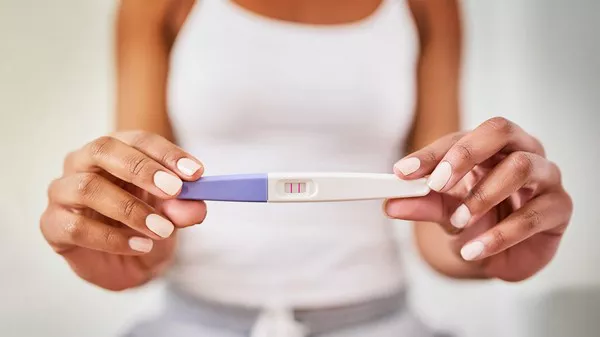Pregnancy is a remarkable and transformative journey, marked by various physical and hormonal changes in a woman’s body. While it is typically a time of joy and anticipation, it can also bring about health challenges, including hypertension or high blood pressure. Hypertension during pregnancy, often referred to as gestational hypertension or preeclampsia, is a serious condition that can have significant implications for both the mother and the baby. In this comprehensive guide, we will explore the causes of hypertension during pregnancy, the different types of hypertensive disorders, and potential risk factors associated with this condition.
Understanding Hypertension During Pregnancy
Hypertension during pregnancy is a broad term that encompasses several hypertensive disorders unique to pregnant women. These conditions can range from mild to severe and can affect both the mother and the developing fetus. Some of the primary hypertensive disorders during pregnancy include:
Gestational Hypertension: This condition is characterized by high blood pressure that develops after the 20th week of pregnancy, without the presence of protein in the urine or other signs of organ damage. It typically resolves after childbirth.
Preeclampsia: Preeclampsia is a more severe form of hypertension during pregnancy and is characterized by high blood pressure and the presence of protein in the urine (proteinuria). It can occur after the 20th week of pregnancy and may lead to complications affecting multiple organ systems, such as the liver, kidneys, and blood clotting.
Chronic Hypertension: Some women have high blood pressure before becoming pregnant or develop it in the early stages of pregnancy. This is referred to as chronic hypertension and can increase the risk of complications during pregnancy.
Chronic Hypertension with Superimposed Preeclampsia: In cases where a woman has preexisting chronic hypertension and later develops preeclampsia during pregnancy, the condition is termed chronic hypertension with superimposed preeclampsia. This is associated with increased risks.
Causes of Hypertension During Pregnancy
The exact causes of hypertension during pregnancy are not always clear-cut, but several factors and mechanisms can contribute to the development of this condition. Some of the primary causes and contributing factors include:
1. Vascular Changes: During pregnancy, the body undergoes significant changes in blood volume and vascular function to support the growing fetus. However, in some cases, these changes can lead to increased resistance in the blood vessels, raising blood pressure.
2. Placental Issues: Dysfunction of the placenta, the organ that provides oxygen and nutrients to the developing fetus, is believed to play a role in some cases of preeclampsia. Insufficient blood flow to the placenta can trigger a cascade of events that result in high blood pressure and other complications.
3. Immune System Factors: Preeclampsia is thought to involve an abnormal maternal immune response to pregnancy. This immune response can cause inflammation and damage to blood vessels, contributing to hypertension.
4. Genetic Factors: A family history of hypertension, particularly during pregnancy, can increase the risk of developing gestational hypertension or preeclampsia.
5. Age and Weight: Women who are very young (under 20) or older (over 35) are at a higher risk of developing hypertension during pregnancy. Additionally, being overweight or obese before pregnancy can also increase the risk.
6. Multiple Pregnancies: Women carrying multiple fetuses, such as twins or triplets, are at an increased risk of developing gestational hypertension or preeclampsia.
7. Chronic Medical Conditions: Preexisting conditions such as chronic kidney disease, diabetes, or autoimmune diseases can increase the risk of hypertension during pregnancy.
8. First Pregnancy: Women who are experiencing their first pregnancy are more likely to develop gestational hypertension or preeclampsia.
9. Previous History: A history of gestational hypertension or preeclampsia in a previous pregnancy increases the risk of recurrence in subsequent pregnancies.
10. Race and Ethnicity: Certain racial and ethnic groups, particularly African American women, are at a higher risk of hypertension during pregnancy.
Risk Factors for Hypertension During Pregnancy
In addition to the underlying causes mentioned above, several risk factors can increase a woman’s likelihood of developing hypertension during pregnancy. These risk factors include:
Family History: If a woman has a family history of hypertension or preeclampsia during pregnancy, her risk is elevated.
Obesity: Women with a body mass index (BMI) in the overweight or obese range are at higher risk of developing hypertension during pregnancy.
Age: Women who are very young (under 20) or older (over 35) are at an increased risk.
Multiple Gestations: Carrying more than one fetus, such as twins or triplets, increases the likelihood of developing hypertension during pregnancy.
Chronic Health Conditions: Preexisting conditions, such as chronic hypertension, diabetes, or kidney disease, can elevate the risk.
First Pregnancy: Women experiencing their first pregnancy are at a higher risk compared to those who have had previous pregnancies.
Race and Ethnicity: Certain racial and ethnic groups, particularly African American women, have a higher risk of hypertension during pregnancy.
Conclusion
Hypertension during pregnancy, encompassing conditions like gestational hypertension and preeclampsia, is a serious health concern that requires close monitoring and medical attention. While the exact causes can be complex and multifactorial, understanding the risk factors and potential contributors is crucial for early detection and appropriate management. Expectant mothers should receive regular prenatal care, which includes blood pressure monitoring, to identify any signs of hypertension promptly. Early diagnosis and intervention can significantly improve outcomes for both the mother and the baby, ensuring a safer and healthier pregnancy journey.


